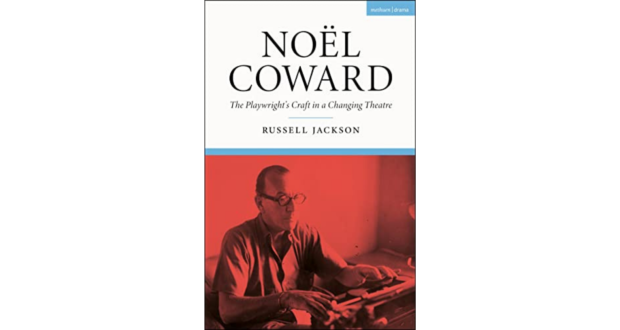A fascinating academic insight into one of our most revered 20th Century playwrights Summary
Rating
Excellent
Sir Noël Peirce Coward is probably best remembered for film performances that culminated with The Italian Job. His comic songs might ring a bell too. ‘Mad Dogs & Englishmen Go Out In The Midday Sun’ is one of his classics. It is, however, Coward’s skills as a West End playwright, developed throughout the first half of the 20th century, that Russell Jackson analyses in this impressive book. His thorough research is brought alive in efficient, effective, readable prose. He raises many fascinating points about plays in general too. It’s a great reminder that so many of the things we regard as good playwriting today didn’t just happen: there was a time before exposition and melodrama were seen as bad, for example. Formal 19th-century structures needed breaking down and rebuilding to give more freedom and, dare I say, fun.
Despite being firmly based in the commercial theatre, Coward, Jackson argues, was still a trailblazer who popularised new forms from the 1920s to the 1960s. Jackson doesn’t just state this, he provides scholarly evidence through, importantly, a deep understanding of the work itself. Not a light read then. Nor, perhaps, one for the general reader. It is also, be warned, very much priced as an academic textbook.
The level of detail is the book’s great joy. If you’ve enjoyed individual Coward jokes such as ‘Very flat, Norfolk’, this is the book for you. You could, of course, accuse it of revealing the mechanism behind the talent, lifting the curtain on Coward’s secrets like Toto exposing the Wizard of Oz. That’s very much the point though. The clue is in the title. Coward’s work is not defined by anything mysterious or magical. He was a craftsman above all else. You learn your craft. You hone it. This is the process Jackson captures over his scholarly 233 pages.
All Coward’s plays are discussed in chronological order using the Master’s extensive unpublished archive as a direct source. Do you want to know which scenes were cut from early drafts of The Vortex? The book will tell you. What is more, it will tell you in which of Coward’s notebooks the cut was made in a pencil stroke. You can read the correspondence between Coward and his business partners about Private Lives. Gertrude Lawrence loved it, apparently except for the original Third Act. A whole sequence was almost cut, by a tired and emotional Coward, at the dress rehearsal of Present Indicative. Revelations like these make the book, in a very real sense, a page-turner.
Coward’s membership of, and writing about, the LGBTQ+ community before and after legalisation is briefly discussed. His apparent dislike of camp, but knowing adoption of it for comedic effect is, perhaps, a slight challenge. It is not Jackson’s job to defend though, just explain.
Overall, if you’re a student of Noël Coward and British playwriting in general, you really should seek out this specialist book. In reviewing it, I have learned a huge amount about the art and craft of writing for the stage. You could, and perhaps should, too.
Written by: Russell Jackson
Published by: Methuen Drama / Bloomsbury Publishing
Noël Coward: The Playwright’s Craft in A Changing Theatre is avialable now from all good booksellers.
 Everything Theatre Reviews, interviews and news for theatre lovers, London and beyond
Everything Theatre Reviews, interviews and news for theatre lovers, London and beyond



